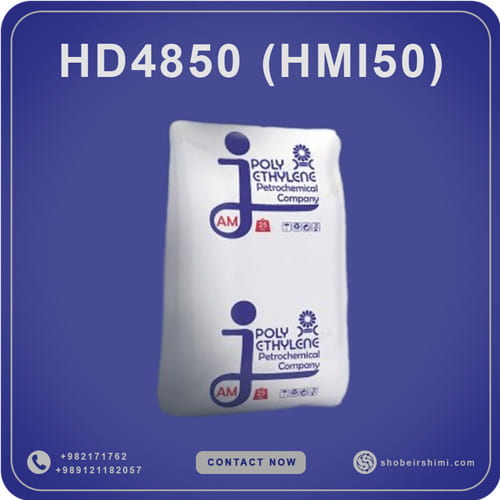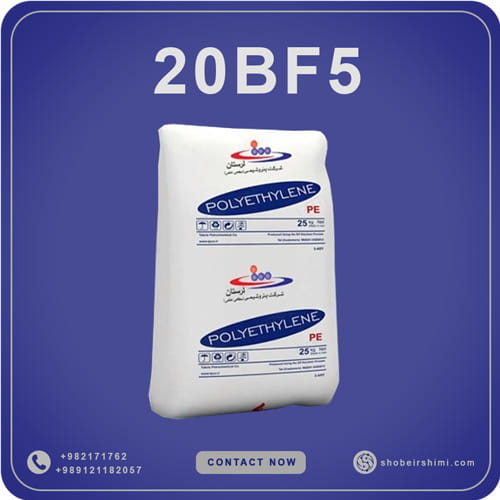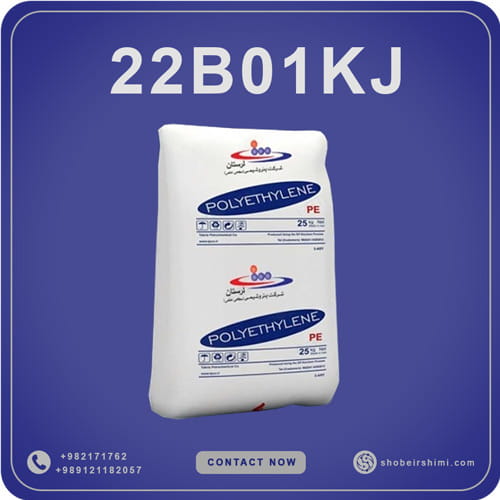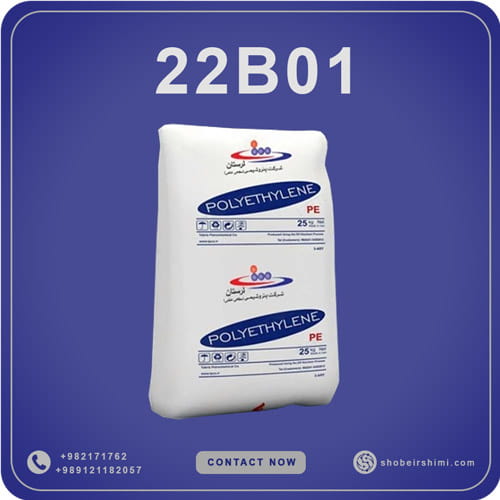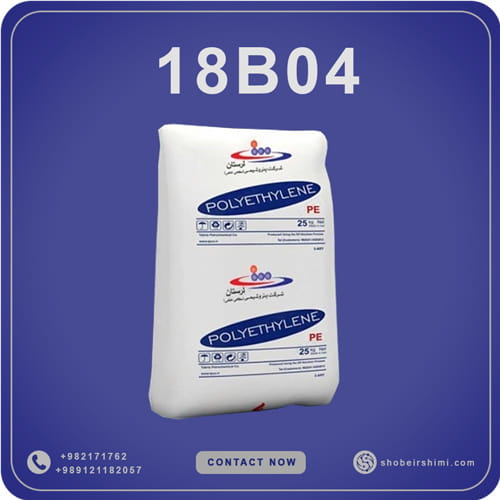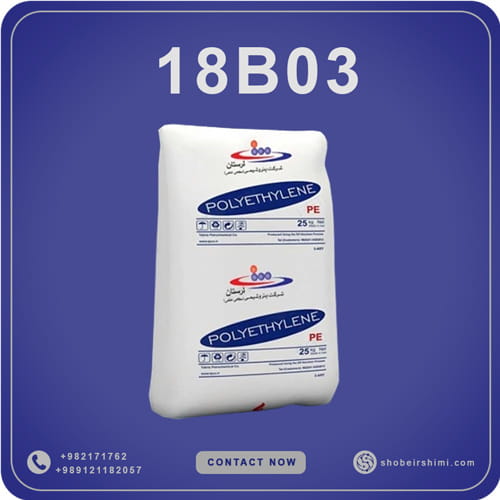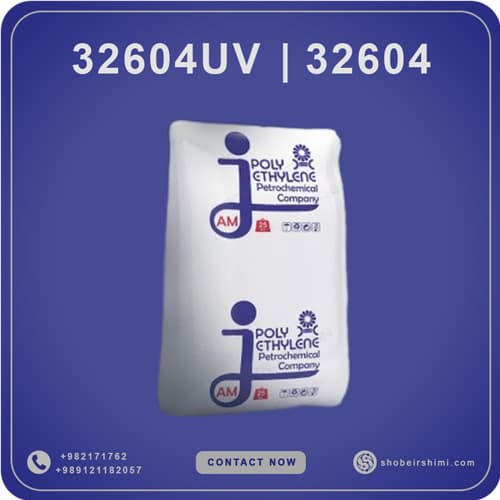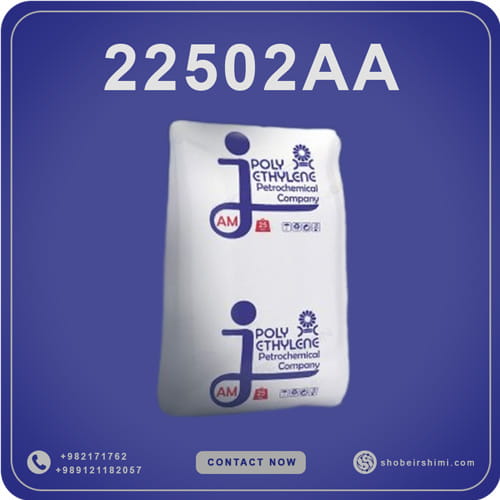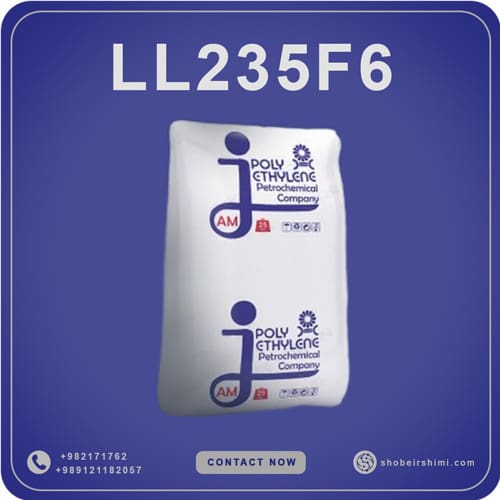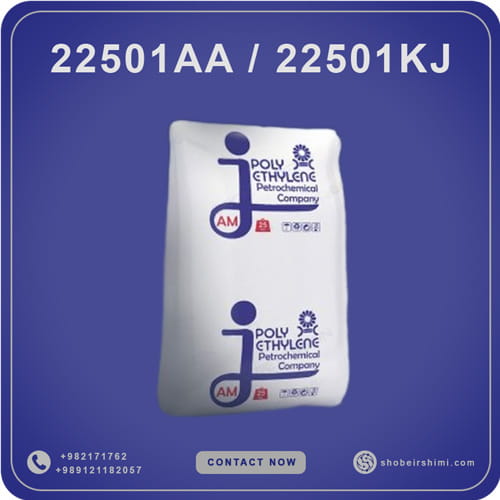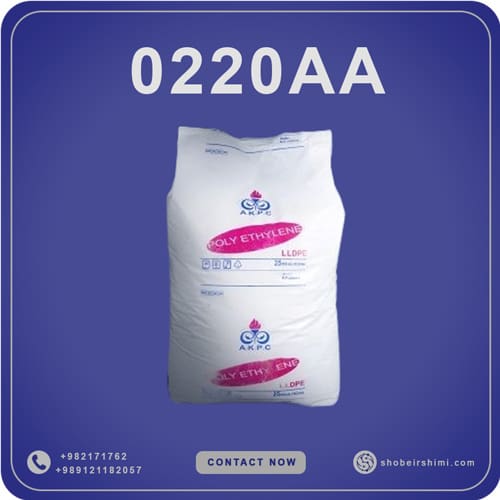Polyethylene Supply & Polyethylene Price In Iran
Polyethylene, a widely used thermoplastic polymer, is a cornerstone of modern industry. From durable packaging to water and gas transmission pipes, its presence is undeniable in our daily lives. Thanks to its lightweight nature, flexibility, and durability, polyethylene plays a crucial role in industries such as construction, agriculture, and automotive manufacturing.
Globally, Polyethylene Supply is influenced by several factors, including ethylene production, geopolitical shifts, and evolving industrial demands. As one of the world’s key polyethylene producers, Iran holds a significant position in this dynamic market. Among its leading suppliers, Shobeir Shimi stands out by providing high-quality, certified polyethylene products, ensuring reliable and efficient supply solutions. If you’re looking for a trusted partner in polyethylene sourcing, stay with us as we explore this market and its key players.
Global Polyethylene Supply and Demand Dynamics
The global Polyethylene Supply and Demand dynamics are shifting, with demand projected to grow steadily through 2024-2025. This increase is driven by the expanding packaging, construction, and agriculture industries, as polyethylene remains a vital material due to its durability, flexibility, and cost-effectiveness.
Key Factors Influencing Supply
Polyethylene production heavily depends on the availability of ethylene, its primary raw material. Ethylene supply, in turn, is influenced by crude oil and natural gas prices, as well as regional production capacities. Geopolitical factors, including trade restrictions and economic sanctions, also play a crucial role in shaping the global Polyethylene Supply chain. Countries with strong petrochemical infrastructure, such as Iran, China, and the U.S., continue to compete for market dominance.
Demand Drivers
Several industries are fueling polyethylene consumption. The packaging sector, particularly flexible and rigid packaging, remains the largest consumer due to increasing e-commerce and sustainability efforts. The construction industry relies on polyethylene for piping, insulation, and protective coatings. Meanwhile, the agriculture sector uses polyethylene films and irrigation pipes to enhance productivity.
Post-Pandemic Industrial Shifts
The COVID-19 pandemic reshaped global industrial demands, leading to increased use of polyethylene in medical supplies, hygiene products, and food packaging. As economies recover, infrastructure projects and smart manufacturing initiatives are further boosting demand.
In this evolving landscape, staying informed about the polythene supply chain dynamics and choosing reliable suppliers is crucial for businesses relying on polyethylene.
Polyethylene Pipe Supply: Applications and Advantages
Polyethylene Pipe Supply has become a crucial factor in various industries due to the increasing demand for durable, flexible, and corrosion-resistant piping solutions. These pipes are widely used in water distribution, gas transmission, and industrial fluid transport, making them essential for infrastructure development.
Primary Uses of Polyethylene Pipes
- Water Distribution Networks (Urban & Rural)
Polyethylene pipes are extensively used in municipal and rural water distribution systems. Their leak-free joints, high resistance to chemicals, and long lifespan make them ideal for delivering clean water efficiently. Unlike metal pipes, they do not rust or degrade over time, reducing maintenance costs.
- Gas Transmission (PE100-Grade Pipes)
High-density polyethylene (HDPE) pipes, particularly PE100-grade, are the standard for safe and efficient gas transportation. These pipes can withstand high pressures, extreme temperatures, and ground movements, ensuring reliability in gas distribution networks.
- Industrial Wastewater & Chemical Transport
Industries rely on polyethylene pipes for transporting hazardous chemicals, wastewater, and industrial effluents. Their chemical resistance prevents contamination and ensures a long service life, making them suitable for harsh industrial environments.
With their unmatched advantages, polyethylene pipes continue to revolutionize fluid transport systems worldwide, providing cost-effective, eco-friendly, and long-lasting solutions.
Iran’s Polyethylene Supply Landscape
Iran plays a major role in global Polyethylene Supply, with a production capacity of approximately 5 million tonnes per year as of 2024. The country’s abundant natural gas reserves provide a steady supply of ethylene feedstock, making it one of the most cost-efficient polyethylene producers. As part of its “third petrochemical jump” initiative, Iran is actively expanding its production capacity, aiming to boost exports and strengthen its position in the global market.
Key Players in Iran’s Polyethylene Industry
Several major companies drive Iran’s polyethylene production. Persian Gulf Petrochemical Industries Company (PGPICC), the largest petrochemical producer in the region, plays a crucial role in Polyethylene Supply, operating multiple production plants. Another key player, Bakhtar Petrochemical Company, focuses on ethylene and polyethylene production, ensuring stable supply for both domestic and international markets.
Export Potential and Competitive Pricing
Iran’s strategic location and cost advantages enhance its role in global Polyethylene Supply, competing with major suppliers in Asia and Europe. Despite trade restrictions, Iranian polyethylene remains attractive due to its lower prices, often 15-20% below global averages. Countries in China, India, and Turkey are among the top importers of Iranian polyethylene, benefiting from competitive pricing and reliable supply.
With continuous investments in infrastructure and production, Iran is set to expand its polyethylene market share, offering high-quality products at competitive rates while navigating global trade challenges.
Polyethylene Supply and Pricing Analysis
Polyethylene prices in the market are influenced by several key factors, including raw material costs, geopolitical conditions, and global demand fluctuations. Iran, as a major supplier, offers competitive pricing compared to other global producers, mainly due to its lower ethylene feedstock costs and trade limitations.
Price Determinants
The polyethylene price per kg is primarily influenced by ethylene feedstock, which averages $450 per ton. Since Iran has abundant natural gas reserves, its ethylene production remains cost-effective. However, sanctions and trade restrictions force Iranian suppliers to offer a 15% discount compared to global market rates, making their polyethylene more attractive to buyers in Asia and Europe.
2025 Price Trends
Industry projections for 2025 suggest that the global polyethylene price per ton will range between $1,050 and $1,300, depending on market conditions. In contrast, Iran’s export prices are expected to be significantly lower, ranging from $750 to $950 per ton, reinforcing its cost advantage. Additionally, pipe-grade polyethylene (PE100), used in high-pressure applications, typically commands a +18% premium over packaging-grade polyethylene due to its enhanced mechanical properties.
With competitive pricing and increasing demand, Iran’s polyethylene market remains an attractive option for buyers looking for high-quality yet cost-effective solutions.
Polyethylene Price per Ton in Iran
The price of polyethylene in Iran varies depending on the grade, market conditions, and regional dynamics. As of the latest data in 2024, approximate prices per tonne are as follows:
- Low-Density Polyethylene (LDPE): $1,130 – $1,210 USD/MT
- High-Density Polyethylene (HDPE): $905 – $1,025 USD/MT
- Linear Low-Density Polyethylene (LLDPE): $932 – $1,005 USD/MT
- Ultra-High-Molecular-Weight Polyethylene (UHMWPE): $2,000 – $2,500 USD/MT
- Medium-Density Polyethylene (MDPE): $1,150 – $1,350 USD/MT
- Cross-Linked Polyethylene (PEX): $1,400 – $1,700 USD/MT
- High-Molecular-Weight Polyethylene (HMWPE): $1,600 – $2,000 USD/MT
- Ultra Low-Density Polyethylene (ULDPE): $1,250 – $1,550 USD/MT
- Metallocene Polyethylene (mPE): $1,500 – $1,800 USD/MT
- Chlorinated Polyethylene (CPE): $1,350 – $1,650 USD/MT
These prices are indicative and subject to fluctuations driven by supply-demand trends, ethylene feedstock costs, and geopolitical factors. Iran’s competitive pricing, often 15-20% below global averages, stems from its abundant natural gas reserves and cost-efficient production. Shobeir Shimi, a trusted leader in Iran’s polyethylene market, provides expert insights into pricing trends and ensures access to competitive rates. For the most accurate and up-to-date pricing, direct inquiries to Shobeir Shimi are recommended.
Key Considerations When Purchasing Polyethylene in Iran
To secure the best value and quality when sourcing polyethylene in Iran, consider the following factors:
Grade Selection
Application-Specific Needs: Select the appropriate polyethylene grade (e.g., LDPE for flexibility, HDPE for strength, or PE100 for pipes) based on your project requirements to ensure optimal performance.
Quality Assurance
Certified Standards: Prioritize products with international certifications (e.g., ISO for PE80/PE100 grades) to guarantee consistent quality and reliability.
Supplier Reputation
Proven Reliability: Partner with established suppliers like Shobeir Shimi, known for delivering high-quality materials and exceptional service.
Pricing
Competitive Comparison: Evaluate offers from multiple suppliers to secure the best rates, noting that prices vary with market conditions, order volume, and location.
Logistics
Timely Delivery: Confirm the supplier’s logistics capabilities for efficient, on-time shipping, minimizing delays, and ensuring product integrity.
Payment Terms
Flexible Options: Choose suppliers offering secure and adaptable payment plans tailored to your business needs.
Customer Support
After-Sales Excellence: Opt for providers with robust after-sales support to address technical queries or issues post-purchase.
Sustainability
Eco-Conscious Choices: Consider recyclable or eco-friendly polyethylene grades to align with environmental goals and sustainability initiatives.
Market Conditions
Informed Decisions: Stay updated on market trends, such as raw material costs and trade dynamics, to optimize purchasing strategies.
For detailed inquiries, current pricing, or to place an order, contact Shobeir Shimi via WhatsApp. With a commitment to quality, competitive pricing, and reliable service, we ensure a seamless polyethylene procurement experience tailored to your needs.
Challenges in Polyethylene Supply Chains
Despite the growing demand for polyethylene, several challenges impact Polyethylene Supply, particularly in countries like Iran. These challenges range from logistical issues to international trade barriers and quality control requirements.
Infrastructure Limitations in Remote Areas
In many regions, especially remote and developing areas, inadequate transportation and distribution infrastructure makes Polyethylene Supply inefficient. Poor road networks and limited access to major shipping routes increase costs and delivery times.
Sanctions Impact on International Trade
For Iranian suppliers, economic sanctions create significant hurdles in exporting polyethylene. Restrictions on financial transactions and shipping limit access to key markets, forcing suppliers to rely on alternative trade routes and discount pricing strategies.
Quality Control Standards
Industrial applications of polyethylene, such as pipe manufacturing and chemical transport, require strict quality control standards. Meeting global certification requirements (e.g., ISO for PE80/PE100 grades) is essential for gaining customer trust, but compliance can be challenging due to varying international regulations.
Addressing these challenges is key to ensuring a stable, reliable, and globally competitive Polyethylene Supply chain.
Choosing a Reliable Polyethylene Supplier
Polyethylene Supply requires selecting the right supplier to ensure quality, efficiency, and long-term reliability. Buyers should consider several key factors before making a decision.
Five Essential Criteria for Evaluation
- ISO Certifications – Ensure the supplier meets international standards (PE80/PE100) for industrial applications.
- Domestic Feedstock Access – A reliable supplier should have direct access to ethane or propane for stable production.
- Customization Capabilities – The ability to provide various pipe sizes and pressure ratings is essential for meeting diverse project needs.
- Strong Logistics Network – Efficient bulk shipping ensures timely deliveries and cost savings.
- After-Sales Technical Support – A good supplier offers technical guidance and troubleshooting for optimal product performance.
Why Choose Shobeir Shimi?
Shobeir Shimi is a key player in Polyethylene Supply in Iran, offering ISO-certified products, direct feedstock access, and flexible customization. With a robust logistics network and dedicated after-sales support, the company provides high-quality, cost-effective polyethylene solutions, making it a trusted partner in the industry.
Conclusion: Strengthening Polyethylene Supply
Due to the large reserves of natural gas, competitive prices, and developing production capacity, Iran Polyethylene Supply is enjoying a strong presence in the international market. Iran, with its annual output of 5 million tonnes and its increasing export potential, remains an important supplier, especially to the Asian and European markets. Nonetheless, Iranian polyethylene remains an appealing choice with cost efficiency and high-quality standards despite challenges like sanctions and infrastructure limitations.
Shobeir Shimi also plays a critical role in Polyethylene Supply, providing ISO-certified products, customized solutions, and strong logistics support to businesses looking for a reliable polyethylene supplier. Regardless of your use case—industrial pipes, packaging, or construction—our offerings provide expert technical assistance and a legacy of quality with every PE delivery. If you’re looking for a smooth and reliable experience in Polyethylene Supply, partner with us today for a trusted and cost-effective solution.



